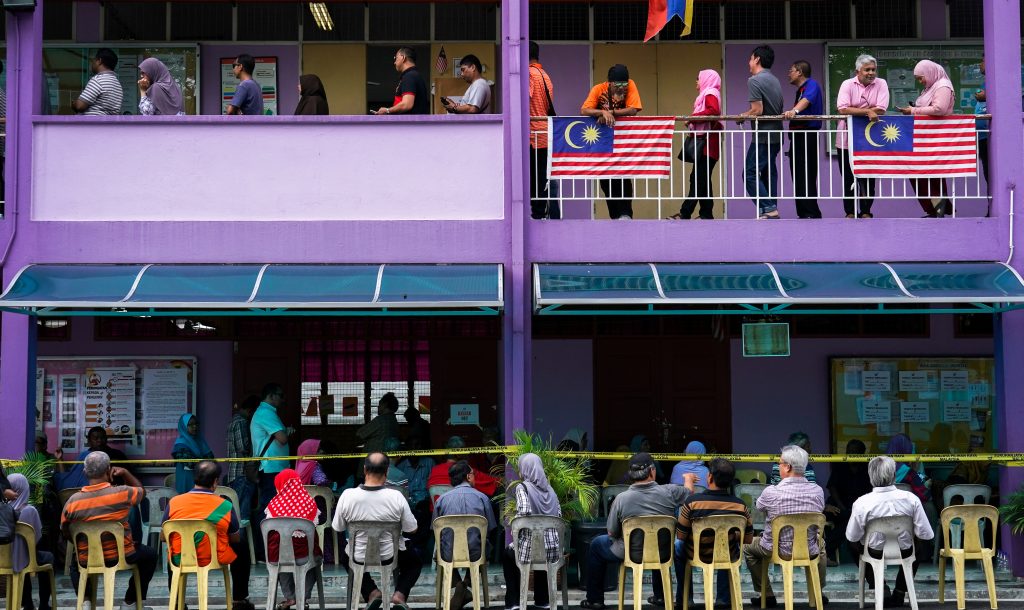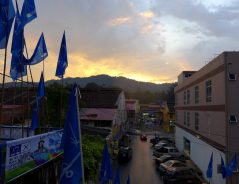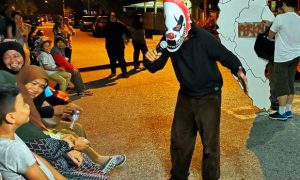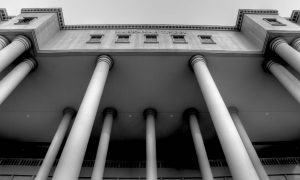Editor’s note: Kean Wong, New Mandala’s former Malaysia section editor and a valued friend and colleague of New Mandala and ANU, was detained by Malaysian police on 16 October 2023. In response to this concerning news we are republishing the following text, which was posted on 26 July and prepared by Dr Elly Kent, then editor of New Mandala, and Dr Ross Tapsell, a member of New Mandala’s advisory board and the Director of the ANU Malaysia Institute.
____________
New Mandala, the Australian National University’s academic blog on Southeast Asian affairs, expresses its serious concern for academic freedom in Malaysia over recent reports of police investigations into the edited book Rebirth: Reformasi, Resistance and Hope in New Malaysia, published by GerakBudaya, Kuala Lumpur, January 2020.
The edited book includes chapters from leading scholars, writers, and journalists who covered Malaysia’s GE14 campaign, many of them initially for New Mandala in 2018. Much of the material was initially published in 2018 as part of New Mandala’s GE14 election campaign series, edited by then New Mandala Malaysia Editor Kean Wong.
In the interests of open and democratic discussion, New Mandala supports the publication of the book and its editor and publisher. The book’s content is serious academic discussion authored by prominent writers and researchers of the country and its region addressing the debates and issues of the GE14 campaign. It is a credible record of a historic period in Malaysia’s political history. It was launched in Kuala Lumpur in November 2019 with little fanfare and no controversy, given the scholarly nature of its content.
Last month, the book’s cover artwork attracted fervent social media attacks, driven in part initially by statements from politicians. Shortly thereafter, Malaysian public figures issued numerous public statements criticising the book’s cover design, and calling for a police investigation.
Malaysia’s police raided GerakBudaya, and seized unsold copies of the book. GerakBudaya’s proprietor, Chong Tong Sin, was questioned, as was Shia Yih Yiing, and the artist who painted the original artwork featured on the cover for an exhibition at a prominent gallery in 2014. Chong Ton Sin said he ‘did not have any intention to insult anyone with the book cover, or any ill intention for using the image’.
The Malaysian government officially banned the book on 1 July 2020. Malaysia’s Lawyers for Liberty described this situation on July 1 as a “manufactured controversy” and stated that “No offence was committed by creators or book publishers of ‘Jata Negara art-work”.
Since then, the South China Morning Post (SCMP) journalist Tashny Sukamaran and seven Malaysiakini journalists, who authored chapters in the book, have been questioned by Malaysian police.
Thus far, it appears no specific essay or passage in the book has been identified in public as the basis for the accusations or complaints made against the editor, publisher and authors, which raises questions as to the legitimacy of these criticisms.
GE14 is more than just a barometer of electoral sentiment. Whoever wins, Malaysia will be a different country afterwards.
The twilight of 1Malaysia, the dawn of another
Yet in recent media reporting, Criminal Investigation Department deputy director (Investigation/Legal) Mior Faridalathrash Wahid was quoted as saying “Investigations revealed some articles in the book are seditious” and reported that “the investigation papers will be handed over to the deputy public prosecutor next week for further action.”
We trust that in due course Malaysian authorities will recognise the authors’ intentions and right to generate scholarly critique and analysis of the democratic processes underpinning the GE14 election on which the book focuses.
We note other calls by Human Rights Watch and Malaysian NGOs for the repeal of the Sedition Act because the offence is vague and the law has been used to criminalise ordinary political and social commentary, unduly interfering with the constitutional right to free speech.
We urge Malaysian authorities to refrain from any activities that indicate a lack of respect for academic and journalistic freedom in Malaysia.
* A correction was made to this text on the same day as publication, with regards to the venue for the 2014 exhibition of Shia Yih Yiing’s work.
 Facebook
Facebook  Twitter
Twitter  Soundcloud
Soundcloud  Youtube
Youtube  Rss
Rss 



